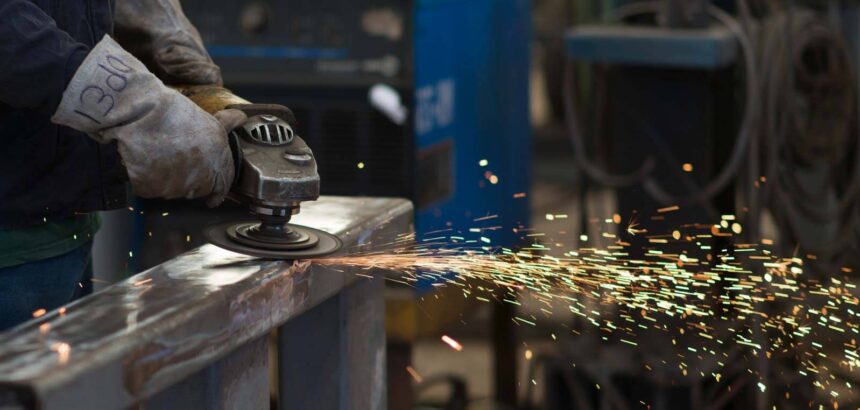Steel production requires a lot of resources and comes with significant environmental challenges. The extraction of raw materials, energy consumption during smelting, and carbon emissions from traditional steelmaking contribute to air pollution, habitat destruction, and climate change.
Amid these challenges, custom steel fabrication offers a way to mitigate environmental impacts while meeting the specific needs of specialized industries. Steel suppliers like sunastm.com play a vital role in supporting fabrication processes that ensure steel works harder and smarter, reducing inefficiencies and supporting a transition to more sustainable practices.
What Is Custom Steel Fabrication?
Custom steel fabrication involves cutting, bending, welding, and assembling steel to create parts that match specific designs. Unlike mass-produced components, these are tailored to fit unique applications. Fabricators collaborate with engineers to bring custom designs to life, focusing on function, precision, and material performance.
This process typically involves advanced tools such as CNC machines, laser cutters, and press brakes. Each step in the process is geared toward producing parts that meet strict performance requirements.
Why Specialized Industries Rely on Custom Steel Fabrication
Custom steel fabrication is the go-to solution for industries where standard parts fall short. Here are a few reasons why:
- Stringent standards: Industries like aerospace, healthcare, and energy operate under tight regulatory frameworks. Custom fabrication ensures components adhere to these standards to reduce risks and ensure compliance.
- Unique environments: Many sectors work in challenging conditions, such as extreme temperatures, high humidity, or corrosive settings. Custom-fabricated steel can be treated or alloyed to withstand these factors.
- System efficiency: Custom solutions are often lighter, stronger, or better aligned with a system’s design. This improves overall performance and reduces wear and tear over time.
Key Benefits of Custom Steel Fabrication
Precision
When parts are custom-made, they’re built to exact specifications. This means they fit into a system perfectly without the need for additional modifications. For example, in the automotive industry, custom steel parts for engines or frames ensure seamless assembly.
Precision also reduces errors during installation. A part that fits right the first time eliminates the need for rework, which saves time and resources.
Strength
The strength of steel is its defining feature, but custom fabrication allows this strength to be fine-tuned. Steel grades can be selected based on the specific demands of a project. For instance, high-strength steel might be used in construction to support heavy loads, while stainless steel is chosen for medical equipment due to its resistance to corrosion.
Design Flexibility
Custom fabrication opens up possibilities for unique or complex designs. Industries often face challenges that standard parts can’t solve. Engineers and designers work with fabricators to create solutions tailored to their needs, such as lightweight yet strong components for renewable energy systems or intricate shapes for aerospace parts.
This level of customization also allows for innovation. It encourages industries to push boundaries, knowing they can rely on tailored solutions to meet their needs.
Reduced Long-Term Costs
Although custom fabrication may involve higher upfront costs, it delivers long-term savings. Tailored components reduce waste, improve efficiency, and last longer. In food processing, for example, stainless steel equipment fabricated to precise specifications is easier to clean and maintain, which can lead to lower operational costs over time.
Applications Across Specialized Industries
Healthcare
Custom-fabricated steel is critical in healthcare, where precision and cleanliness are non-negotiable. Equipment such as surgical instruments, operating tables, and diagnostic machines are often made from stainless steel. These parts are designed to withstand frequent sterilization without degrading, ensuring patient and healthcare providers’ safety.
Aerospace
The aerospace sector demands high-performance materials capable of withstanding extreme conditions, including intense heat and stress. Custom-fabricated steel components like engine parts and landing gear offer the strength and reliability required for flight. Fabrication also ensures that these parts meet strict weight and dimensional standards, which are crucial for safety and efficiency.
Construction
Structural steel is a staple in construction, providing the backbone for everything from skyscrapers to bridges. Custom fabrication allows beams, columns, and trusses to be tailored to specific architectural and engineering needs. This ensures buildings and structures meet both aesthetic and functional goals.
Energy Sector
From wind turbine towers to pipelines, custom steel fabrication supports the energy sector by creating components designed for harsh environments. Offshore wind farms, for instance, rely on steel parts that resist corrosion from saltwater while maintaining structural integrity under heavy loads.
Custom Fabrication vs. Standard Production
| Feature | Custom Fabrication | Standard Production |
| Fit | Tailored to exact specifications | General fit, may need adjustment |
| Material Selection | Optimized for application | Limited to stock options |
| Cost | Higher initial investment | Lower upfront cost |
| Durability | Built for specific conditions | Standard durability |
| Design Options | Highly flexible, unique solutions | Restricted by predefined templates |
Sustainability and Material Efficiency
Industries are increasingly focusing on sustainable practices, and custom fabrication plays a role in reducing waste. Since parts are built to exact specifications, less raw material is wasted during production. Steel itself is also fully recyclable, making it a responsible choice for environmentally conscious businesses.
Additionally, long-lasting components reduce the need for frequent replacements, which lowers overall resource consumption. In sectors like transportation, using custom lightweight steel parts improves fuel efficiency and reduces emissions.
Cooperation with Experienced Fabricators
To get the most from custom fabrication, partnering with skilled professionals is essential. Experienced fabricators bring expertise in material selection, design optimization, and production techniques. They also leverage advanced technologies like CAD software and automated cutting tools to ensure precision.
Collaboration is key. Fabricators work closely with clients to understand their requirements and offer practical solutions. This ensures the final product not only meets expectations but often exceeds them.






